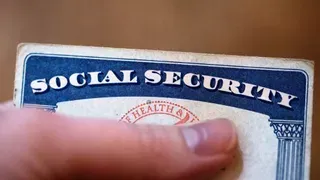April 12, 2010
HIV+ Olympic Equestrian Faces Charges for Sex with Uninformed Partner
Kilian Melloy READ TIME: 6 MIN.
An Olympic equestrian hero is facing charges under Florida law for allegedly not having informed a former boyfriend of his HIV+ status.
Darren Chiacchia led the U.S. equestrian team to the bronze medal in 2004, a triumph that was overshadowed when, in 2008, Chiacchia was thrown from a horse and badly hurt. While receiving treatment, Chiacchia tested HIV positive, the New York Times recounted in an April 11 article.
Chiacchia, a resident of Ocala, Florida, had not disclosed his HIV status to a sexual partner with whom he had an ongoing relationship. When the man discovered Chiacchia's status by accident, he went to the police. Chiacchia was charged in January of this year; he entered a not guilty plea in February. The case comes to trial in June. Under a 1997 Florida law, Chiacchia could receive a 30-year sentence if he's found guilty, the article said. The former boyfriend, who remained unnamed in the article, had tested negative prior to August of last year. The men had been dating since February of 2009; the relationship ended last June.
The article noted that in 32 states, there are laws on the books--many of them passed during the height of fear and anxiety over AIDS, in the 1980s and early 1990s--that criminalize HIV+ individuals, in many cases in terms of their sexual activities, but in at least two states--Pennsylvania and Louisiana--for biting or even spitting at others, even though HIV is not transmitted through saliva.
In some instances, a person's HIV+ status can leave that person liable to additional charges of "assault with a deadly weapon," the weapon being HIV. In one case, a HIV+ man named Phillipe Padieu was charged last year in McKenney, Texas on six counts of aggravated sexual assault with a deadly weapon after having sex with half a dozen women; Padieu was found guilty and sentenced to a cumulative total of 250 years. And in Gatesville, David Castillo, the DA for Coryell County, says that he will try a suspect believed to be HIV positive on similar charges after the suspect allegedly sexually assaulted a 16-year-old boy. "You can fire a gun at someone and miss, and it's still aggravated assault with a deadly weapon," Castillo told the press, explaining that he would issue the charges even if the alleged victim tested HIV negative.
But advocates for people living with HIV disagree about the application of the law in these cases. "HIV should not be an aggravating factor unless there's some evidence that he intended to do some harm and did some harm," said the executive director of the Center for HIV Law and Policy, Catherine Hanssens, the article reported. "Criminal law in every state is adequate to deal with it," added Hanssens. "But to treat it as evidence of guilt and a deadly weapon wasn't appropriate in 1985, and it isn't appropriate now. To refer to HIV as a deadly weapon in 2010 speaks of just unforgivable ignorance."
Worldwide, the question of whether sexually active people with HIV should be face criminal charges if they knowingly expose others to the disease has been thorny. In Uganda, a proposed bill to punish gays with life imprisonment or worse stipulates that the penalty will be capital punishment for HIV-positive men who have sex with other men. In New Zealand, an Auckland man was charged with having sex with a number of partners after being diagnosed as HIV-positive; half of his sexual partners reportedly tested positive after their encounters. The suspect killed himself in his jail cell last May.
That case was similar to that of a 49-year-old Australian man, Michael John Neal, who was convicted in 2008 of deliberately trying to transmit HIV to others. Evidence presented to the court over the course of Neal's trial included the claim that the accused had convened sex parties where the intent was to infect HIV-negative people. The court was also told that as part of the attempt to spread the virus, Neal sported a piercing on his genitalia.
In 2008, a Dutch court convicted two men, identified only as Peter M. and Hans J., of attempting to spread HIV by injecting their victims with tainted blood at sex parties. The men reportedly drugged their victims before injecting them with infected blood, although the court found that that allegation could not be proven. All fourteen victims tested positive for HIV, but the court also noted that it could not be conclusively proven that their infections stemmed from the injections. Nonetheless, Peter M.--who also was convicted on a rape charge--was sentenced to nine years, and Hans J. to five years.
In the United States, a 22-year-old drifter was among the first to be tried and sentenced for spreading HIV. The young man, Nushawn J. Williams, received a sentence in 1999 of 4 to 12 years after investigators learned that he had bartered sex for drugs, offering partners crack, despite knowing that he was HIV positive, the New York Times reported in an April 6, 1999 article. During a year spent in Jamestown, NY, Williams reportedly had sex with 48 young women, 13 of whom later tested positive for HIV. Authorities also learned that Williams had had sex with up to 75 more people in New York City. The case was a national sensation, and led several states to put HIV-related statutes on the books--though not New York state.
Former Chautauqua Country DA James Subjack tried Williams for his crimes, but had New York had laws specific to HIV+ perpetrators, he indicated, Williams would have been charged with more than rape and reckless endangerment; he would have been put in the dock for attempted murder. With no such laws on the books, "How would you convince a jury, for example, that when some guy is having random sex with somebody else, that it was his intent to kill them as opposed to have sex?" said Subjack.
In Canada, a thief menaced police with a hypodermic needle he claimed contained HIV, a May 13, 2009 article in the Canadian newspaper the The Edmonton Sun reported. Similarly, an American suspect reportedly robbed several establishments earlier this year, armed with a hypodermic needle that he claimed contained HIV.
But in at least one instance, a gay man who was attacked and beaten on a Chicago train was able to fend off his assailants by claiming to be HIV positive. Earlier this year, Daniel Hauff intervened when three men began to harass a young gay passenger. The three then began to hurl anti-gay epithets at Hauff and to beat him. Hauff managed to repel the attackers by telling them that he was HIV positive and smearing his own blood on them. Hauff is, in actuality, HIV-negative.
Florida officials say that prosecuting Chiaccia was the right thing to do. "Based on the facts of the case, we felt filing charges was appropriate, and we believe the crime was committed," said an assistant state attorney assigned to the case, Timothy McCourt. Added McCourt, "Failing to inform somebody can put their life at risk. And I think in a real sense, you're playing Russian roulette with another person's life."
But others, such as Hanssens, disagree: by criminalizing a person's HIV status, they argue, the state creates a disincentive to testing. Moreover, most cases end not with a clear-cut conviction, but in plea deals.
Mandating disclosure could also been seen as an invasion of privacy. "I could not share with you and have you leave me with this information about me," the New York Times quoted an email it reported was sent from Chiaccia to his former boyfriend. Moreover, the brain injury that Chiaccia suffered in his fall comes into the case; since the injury affected his memory, could Chaicchia be certain as to whether or not he had, in fact, informed the other man of his HIV status?
"These statutes are not meant to create he-said, she-said lovers' quarrels at the end of the breakup," Chiacchia's layer, Baron Coleman, told the New York Times.
Nor should they single our HIV+ individuals, say opponents to such laws. "Down the line, it stigmatizes everybody with H.I.V. because it makes them potential criminals," Jeanne Bergman, an advocate for HIV+ persons, told the New York Times.
Kilian Melloy serves as EDGE Media Network's Associate Arts Editor and Staff Contributor. His professional memberships include the National Lesbian & Gay Journalists Association, the Boston Online Film Critics Association, The Gay and Lesbian Entertainment Critics Association, and the Boston Theater Critics Association's Elliot Norton Awards Committee.






